Here is how to disable the OneDrive Sync Auto-paused notification in Windows 10 if you find it annoying. Windows users must be familiar with OneDrive. It is a preinstalled cloud sync client app, that works using your Microsoft Account to sync your files between devices you own.
Advertisеment
OneDrive is the online document storage solution created by Microsoft which comes bundled as a free service with Windows 10. You can use it store your documents and other data online in the cloud. It also offers synchronization of stored data across all your devices.
When you have OneDrive installed and running in Windows 10, it adds a Move to OneDrive context menu command available for files under certain locations included in your user profile like Desktop, Documents, Downloads, etc. Also, OneDrive has the "Files on-demand" feature that can display placeholder versions of online files in your local OneDrive directory even if they were not synchronized and downloaded. Finally, for the files you store in the OneDrive folder you can use the file history feature.
Windows 10 will automatically pause OneDrive sync when the device is on battery power, or is on a metered network connection. You will see a notification that informs you that the sync is automatically paused, along with an option to continue syncing your data anyway.
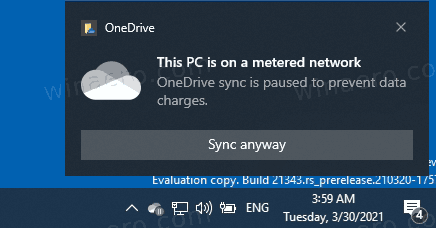
This post will show you how to disable notifications for the OneDrive sync auto pause in Windows 10.
Disable OneDrive Sync Auto-paused Notification in Windows 10
- Click the OneDrive icon in the system tray to open its settings.
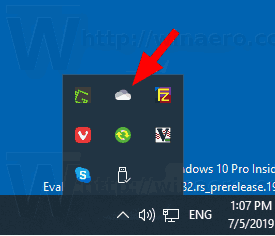
- Now, click on the Help and Settings icon in the OneDrive flyout.
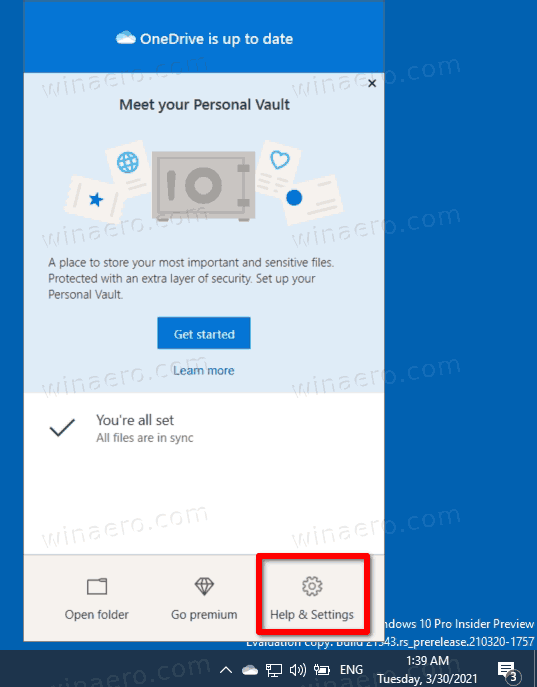
- Finally, click on the Settings entry.
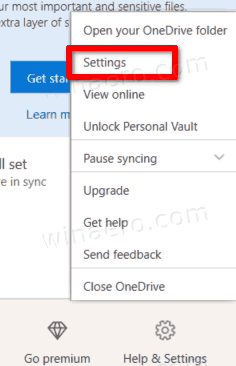
- Uncheck (disable) the Notify me when sync is auto-paused or When sync pauses automatically option on the Settings tab. It is enabled (checked) by default.
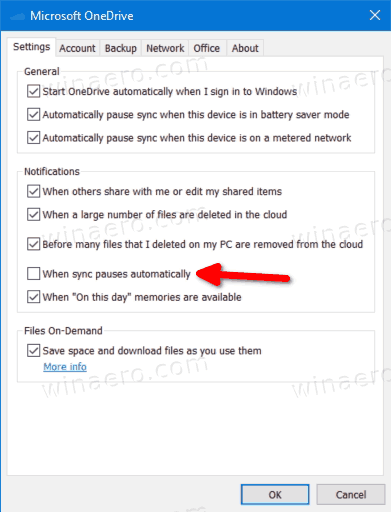
- Click OK to apply the change.
You are done.
Alternatively, you can configure this option in the Registry. The corresponding option is available in the HCKU branch, as it is a per-user setting.
Disable Notification When sync pauses automatically for OneDrive in Registry
- Open the Registry Editor app.
- Go to the following Registry key.
HKEY_CURRENT_USER\Software\Microsoft\OneDrive.
See how to go to a Registry key with one click. - On the right, modify or create a new 32-Bit DWORD value
UserSettingAutoPauseNotificationEnabled.
Note: Even if you are running 64-bit Windows you must still create a 32-bit DWORD value. - Set its value to 0 to disable notifications.
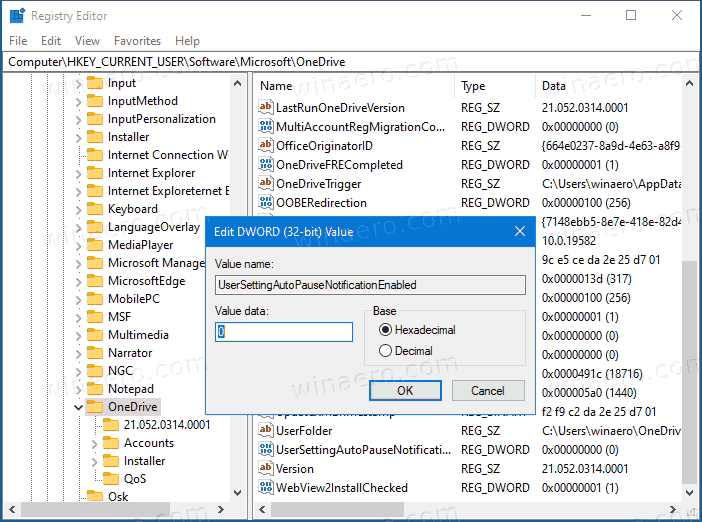
- A value data of 1 will keep the notification enabled.
You are done.
To save your time, you can download the following ready-to-use Registry files.
The ZIP archive includes the following files.
- Disable notification when OneDrive sync is auto-paused.reg - use this file to disable the OneDrive auto-pause notification.
- Enable notification when OneDrive sync is auto-paused.reg - use this file to restore the defaults.
Extract the downloaded archive to any folder you like and double-click on the file to apply the change.
Support us
Winaero greatly relies on your support. You can help the site keep bringing you interesting and useful content and software by using these options:
